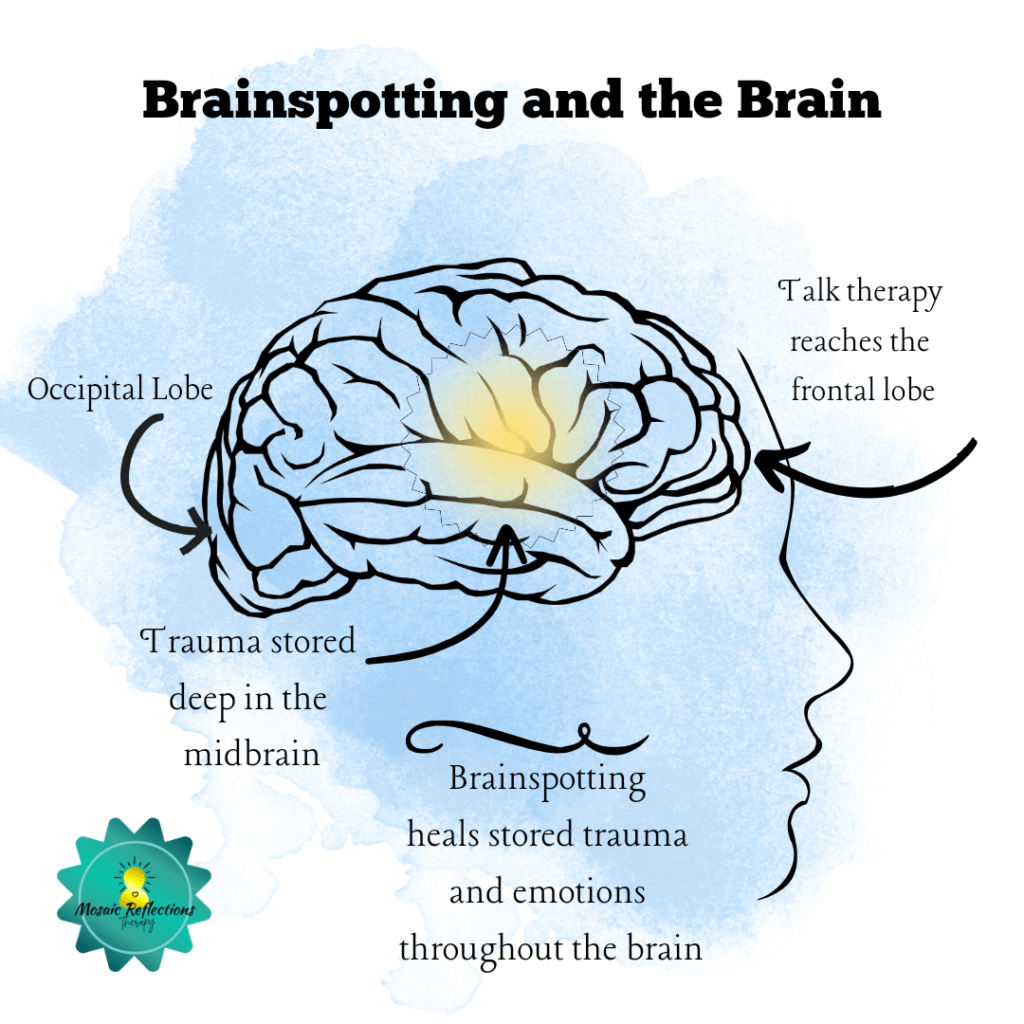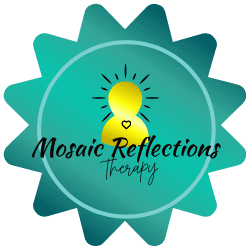Unveiling the Power of Brainspotting: A Revolutionary Approach to Mental Health

A relatively new therapeutic model called Brainspotting has been gaining attention for its unique and promising approach to healing. Brainspotting delves into the intricate workings of the brain and offers a fresh perspective on resolving trauma and achieving emotional healing.
Understanding Brainspotting Therapy:
Brainspotting is a therapeutic technique developed by Dr. David Grand in 2003. Unlike traditional talk therapies which utilizes a top down approach, brainspotting utilizes a bottom up approach to therapy. Talk therapy reaches the frontal lobe of the brain responsible for cognition and communication. Brainspotting recognizes the connection between an eye position and the midbrain’s processing of trauma, emotions, and memories. The term “brainspot” refers to an eye position that connects with a feeling of activation in the body that is emotionally charged or a traumatic memory that is stored in the brain.

How Brainspotting Works:
During a Brainspotting session, the therapist will help guide the client’s eyes to locate and focus on a “brainspot.” This specific approach aims to access the neural networks in the brain associated with unresolved trauma or distressing memories. By maintaining eye focus on these spots, clients can tap into their subconscious to further facilitate a strong form of healing. This opens a window for deeper processing and release of pent-up emotions.
The Power of Dual Attunement:
Brainspotting stands out from other therapeutic techniques through its use of dual attunement. This concept involves the therapist paying close attention to both the client’s internal experience and their physiological or body response. Attunement refers to the strong bond of trust and safety that develops between the therapist and client, which can help to soothe the client’s nervous system. By being fully attuned to their client, therapists can make necessary adjustments in real-time, ultimately leading to a more effective therapeutic experience.
Trauma Resolution and Emotional Healing:
Brainspotting is a highly effective method for resolving trauma. It works by tapping into the brain’s natural capacity to process and release trauma, leading to profound healing experiences. This approach has also shown promising results in treating post-traumatic stress disorder (PTSD), anxiety, depression, and a range of other mental health concerns.

Beyond Trauma:
Brainspotting was initially developed for trauma therapy, but its potential applications have expanded significantly. Beyond trauma, therapists can use brainspotting to address performance-related issues, boost creativity, and improve overall well-being. Because brainspotting can be tailored to different therapeutic goals, it is a highly versatile tool in mental health treatment.
Client-Centered and Non-Invasive:
One of the key benefits of Brainspotting is its focus on the client’s needs. The therapist acts as a guide, helping the client to discover and heal themselves. The non-invasive nature of the technique creates a safe and comfortable environment for people to explore and process their emotions. This can be done without the need for extensive talking or verbal communication.

Conclusion:
The field of mental health is continuously evolving, and Brainspotting is a revolutionary approach that bridges the gap between neuroscience and therapy. It focuses on the relationship between eye movement and emotional processing, which opens new doors for individuals seeking profound healing and transformation. As research on Brainspotting expands, and more therapists incorporate this technique into their practice, it is clear that we are witnessing a paradigm shift in the way we address and understand mental health.
Experience Brainspotting For Yourself:
Experience the life-changing benefits of this amazing treatment for yourself! Embark on a new journey towards healing and resilience. If you’re ready to delve into the depths of your mind to unlock emotional well-being, take the first step today. Eleena Hardzinski, LMFT is an experienced and qualified Brainspotting practitioner and will help you begin your path toward profound self-discovery. Your mental well-being deserves the attention it needs – so start your Brainspotting journey now!

Eleena Hardzinski is a Licensed Marriage and Family Therapist and Brainspotting Therapist practicing online in North Carolina, South Carolina, and Wisconsin.
Eleena supports women struggling with motherhood, relationships, past traumas, and anxiety. She helps moms find balance, overcome guilt, establish healthy boundaries, heal from past traumas, improve family communication, and regain confidence and joy in their lives.







